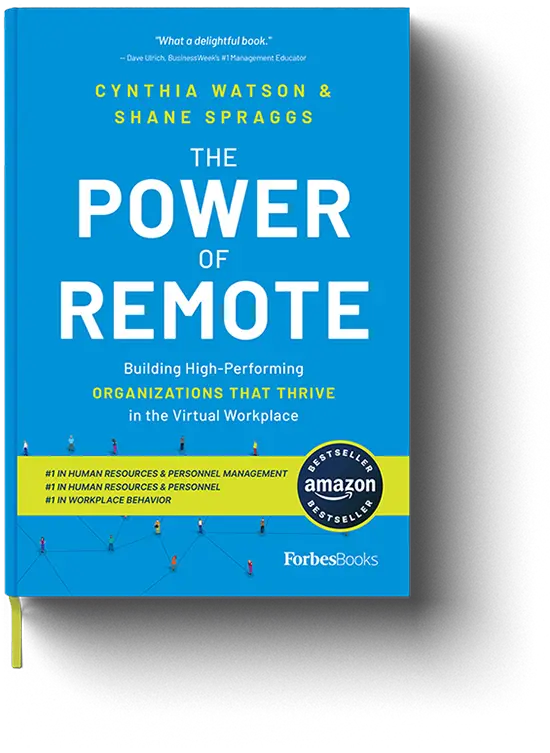Revisit the original article of our insightful five-part series, ‘Why Hauling Everyone Back To The Office Doesn’t Make Them More Productive.’
In our last couple of articles (Four Keys To Onboarding Ultra-Productive Remote Employees, How to Align New Remote Employees to Company Culture) we looked at how important it is anchor new hires via a strong onboarding process that includes ensuring that they have a foundational understanding in the overall company purpose and how their job and team contributes to it.
We continue the discussion in this article by looking at some easy elements any manager can introduce to build a stronger, more productive organization.
Engaged team members don’t feel like cogs in a machine. Rather, they have an appreciation of their roles, not only within the company but also toward achieving something meaningful, developing their skills, and furthering their career. When you inform team members of their responsibilities within the company, you could also begin to delegate authority.
For instance, you might tell John, the new marketing associate, that the tech team is often sluggish about informing marketing of new developments, so it would be great if he could open a regular channel of communication. Assuming he runs with it — creates calendar reminders and keeps the techies on their toes — suddenly John’s responsible for keeping IT and marketing aligned.
Note the soft touch. You didn’t tell John exactly what he had to do in order to be reliably informed by the IT team, but rather gave John the autonomy to determine the best approach. When delegating authority, a bit of guidance is crucial, but it’s best to avoid being prescriptive. Instead, explain the issue to the employee — tech leaves us out of the loop — and let him get to work. You haven’t delegated if he’s not finding his own path.
Another good way to build remote culture is to transform individual success into team success. This is done by fostering a culture in which employees feel that their own achievements, and the achievements of their colleagues, are equally valuable. Encourage them to share successes and praise each other, to be open to each other’s ideas and respect each other’s time.
At Virtira, we have an incentive program that rewards high-achieving teams, for instance, when they do such great work that the client extends their contract. But it can also be more personal. If you want team members to care about your mission, it’s important to care about who they are and recognize their contributions. To encourage individuals to recognize the achievements of others, we have a dedicated public channel in WebEx so people can “high-five” each other for even minor accomplishments.
We also maintain a tip fund, which any manager can use to request swag or gift cards up to $500 for top performers. The tips are financed by funds allotted to workplace social events, which are much less frequent in this remote age. Of course, you don’t want to make any of your team members feel as if they have disappointed. Still, at the same time, it’s important to recognize team members who have exceeded expectations and consistently delivered impressive work. Keep track of those who have played a key role in driving your team’s and your company’s success, and be sure to reward them. Even a $10 tip has value; it’s really about being recognized.
There are other more social ways to strengthen co-worker bonds and solidarity. Many companies like to do online happy hours, but we prefer not to force our staff to attend office events during their time off. We’ve found virtual “icebreakers” to be an excellent way to build engagement and understanding and energize the discussions that follow.
Usually just five minutes long, these camera-optional exercises can break up an intense workday and help everyone get to know each other. I introduced them a few years ago, and they were an immediate hit with the team. The game might be a simple “would you rather” question or be more involved such as text-message poetry or a rock, paper scissors tournament.
Icebreakers offer something more than pre-meeting chit-chat, encouraging people to let down their guard, speak more freely and have a few laughs. This, in turn, leads to stronger bonds and better working relationships — and greater understanding.
After all, the effectiveness of remote collaboration is inextricably linked to your team’s ability to communicate. Being an expert in the most potent online tools is useless if you’re unable to understand your colleagues’ input or share your views with others. Communication is one of the primary challenges of remote work, which requires more skillful and precise messaging.

With increased demand for hybrid and fully remote work styles, most firms understand that some form of distance work is here to stay – and have put some remote protocols in place. But are they the right ones?
It’s time to take advantage of the many opportunities remote work presents. Stop saying “we’re not there yet,” and start saying “we’ve arrived!”
This book will show you how.